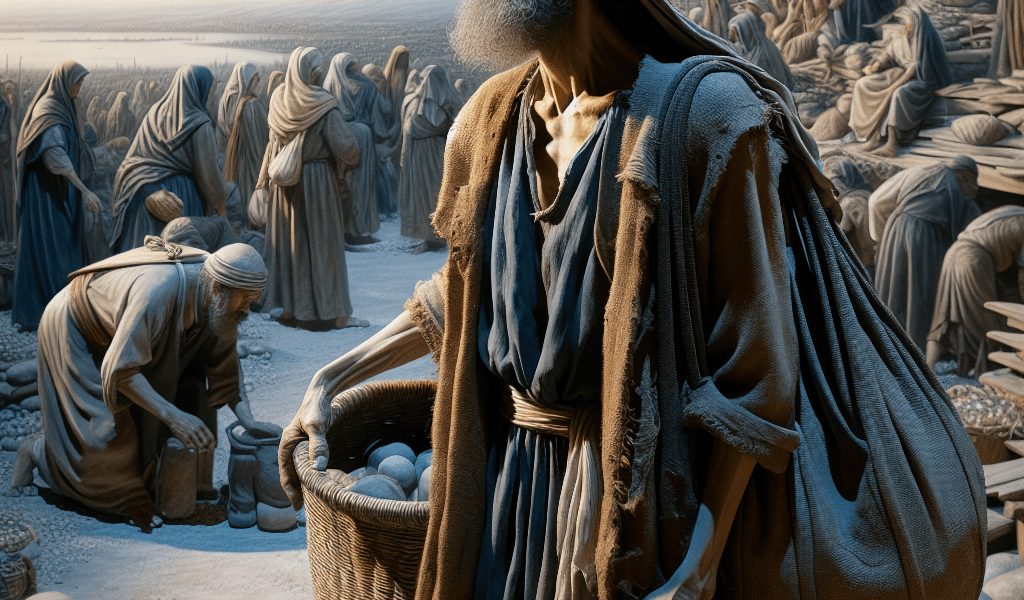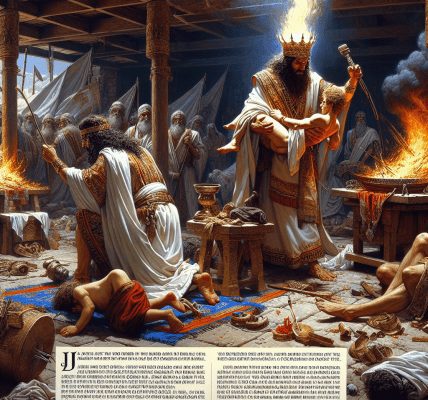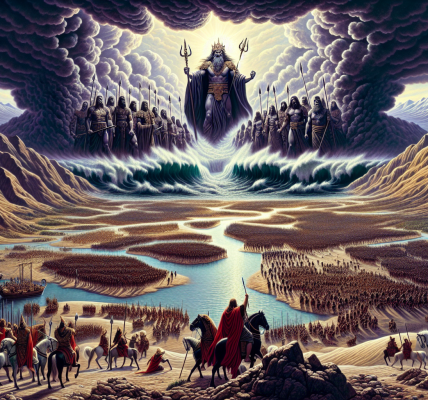Once upon a time, there existed a man named Eleazar who was humble, devout, and struck by profound hardship. Living in a world brimming with tribulation and peril, his life was akin to a warfare upon the Earth. His existence was marked by labor like that of a hireling — a servant sold to toil and hardship — yearning for solace yet unable to find comfort, mirroring the journey of all men upon Earth.
Much like a diligent servant eagerly eyeing the shade at the end of a long day, or a hireling awaiting his hard-earned wages, Eleazar’s months were laden with misery, and the burden of persisting through torturous nights fell on his weary shoulders. He was no stranger to the revolving cycle of hope and despair, finding himself tossed to and fro with anticipation for the dawning of a new day.
His torment took physical form as his flesh was inflicted with ailments, covered with worms and clods of dust, betraying his internal turmoil. His skin healed only to break out again as if mocking his fading hope. Life was swift, the days slipping through his fingers faster than a weaver’s shuttle. His existence was a mere breath, transient yet filled with suffering.
Eleazar’s despair was such that not even his home offered sanctuary. Those who had known him saw him no more; his place was forgotten, as if he had descended into Sheol, the realm of the departed. Despite the agony enveloping his spirit, Eleazar did not silence his cries; he spoke of his bitterness, predicaments, and the absence of relief.
He questioned his purpose – Was he a creature meant to endure endless observation and trials? Was he a sea-monster set to be watched over? His bed, once a refuge of comfort, was now the birthplace of terrifying dreams and visions, his night filled with phantoms that stirred his despair.
His soul was stretched thin, preferring the final rest of death than the relentless torment of his bones. Eleazar yearned for release from his hollow life yet was forced to persist. The weight of his existence was his own to bear, questioning the divine watcher of men.
Moreover, Eleazar’s heart bore the burden of guilt, denting his spirit with unrequited repentance. He pleaded for a pardon for his unknown transgressions and longed for his iniquities to be wiped clean, signaling a desperate yearning for redemption and understanding. Ultimately, he realized that when he descends into the dust of death, the divine searcher would continue to seek him, but he would be no more.
Thus unfolds the tale of Eleazar, a testament to the human condition’s tragedy, bearing witness to our struggles, fears, and the deep-seated desire for divine compassion and understanding within our transient existence.




